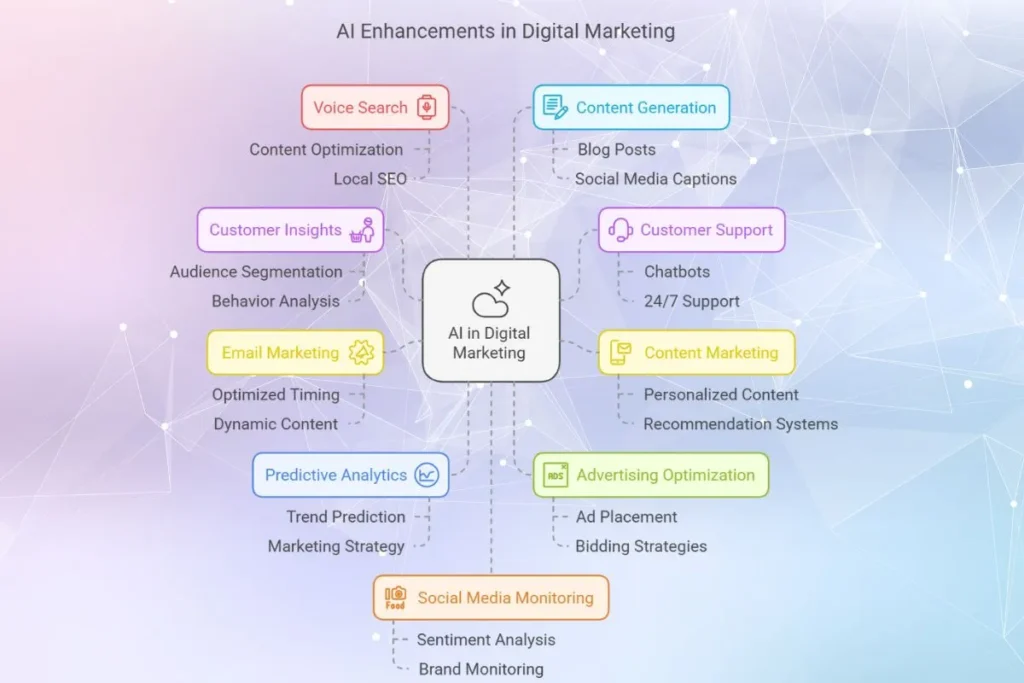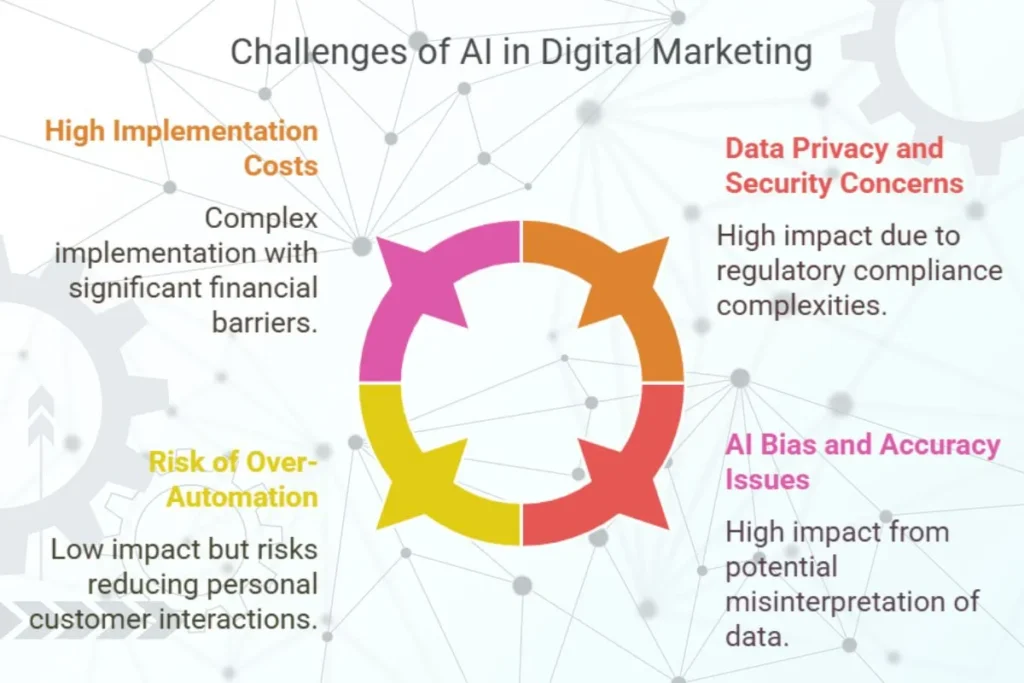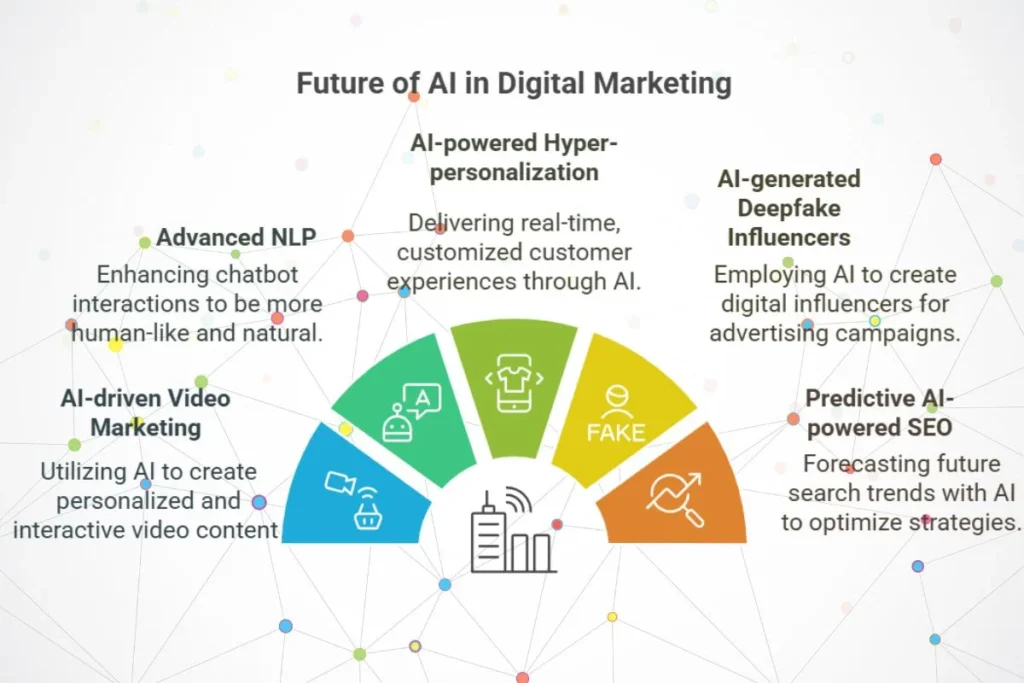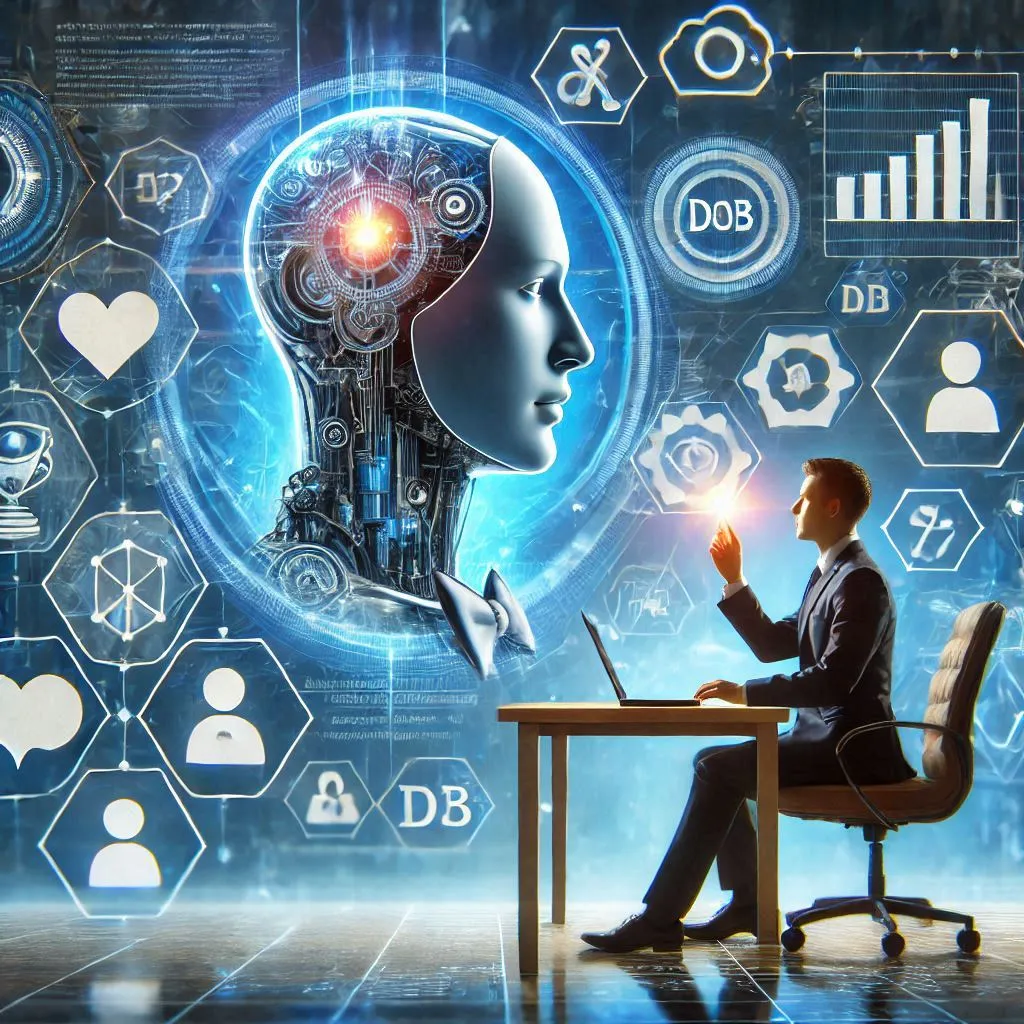Artificial intelligence (AI) has transformed digital marketing by improving customer targeting, automating processes and analyzing data to create more effective campaigns. What is the role of AI in marketing? Businesses use AI to optimize ads, personalize content, enhance user experiences and predict consumer behavior with greater accuracy.
In this article we shall study the role of artificial intelligence in digital marketing along with AI driven marketing strategies to improve efficiency, reduce costs and deliver highly relevant experiences to users.
Effect of AI on Digital Marketing
AI helps marketing professionals to understand consumer behavior, predict trends and automate marketing strategies. It makes marketing campaigns more precise and scalable while improving customer engagement. Here are the key areas where AI is making a difference:
1. AI Powered Customer Information
AI collects and analyzes customer data to help businesses to understand preferences and behaviors. It identifies patterns, segments audiences and delivers targeted marketing strategies.
Benefits:
- Better audience segmentation
- Improved customer engagement
- Higher conversion rates
An e-commerce business uses AI to track customer behavior, predict future purchases and recommend products matching to each shopper.
2. Chatbots for Customer Support
AI chatbots handle customer queries, provide recommendations and assist with purchases. They offer real time, 24/7 support, enhancing the customer experience.
Benefits:
- Instant customer support
- Reduced response time
- Lower operational costs
A retail company uses an AI chatbot to answer customer questions, process returns and help users navigate the website.
3. Personalized Content Marketing
AI analyzes user data to deliver personalized content. AI driven recommendations ensure users see the most relevant articles, videos and promotions.
Benefits:
- Higher engagement rates
- Increased user retention
- More relevant marketing messages
A streaming platform suggests movies and TV shows based on a user’s viewing history, ratings and watch patterns.
4. AI Powered Email Marketing
AI improves email marketing by analyzing customer behavior and sending personalized messages at optimal times. AI generated subject lines and dynamic content increase open rates.
Benefits:
- Higher email open rates
- Increased conversions
- Automated email scheduling
A fashion brand uses AI to send product recommendations based on past purchases, abandoned carts and browsing history.
5. Predictive Analytics for Better Decision Making
AI predicts customer behavior and future trends by analyzing historical data. This allows marketers to make informed decisions and optimize marketing spend.
Benefits:
- Better marketing strategies
- Improved customer targeting
- Reduced ad spend wastage
A financial services company uses AI to predict customer demand for investment products, which helps them to launch targeted campaigns.
6. Automated Advertising Optimization
AI automates ad placements, bidding strategies and audience targeting. Real time adjustments ensure maximum return on investment (ROI).
Benefits:
- Cost effective ad spending
- Increased ad relevance
- Higher click-through rates
A digital marketing agency uses AI to manage PPC campaigns, which optimizes bids and placements based on user interactions.
7. Voice Search Optimization
AI powered voice assistants like Alexa and Google Assistant change how consumers search for information. Businesses must optimize content for voice search to maintain visibility.
Benefits:
- Increased website traffic
- Improved local SEO
- Enhanced user experience
A restaurant optimizes its website for voice search queries like “best pizza near me” to attract more local customers.
8. AI Generated Content
AI tools create high quality blog posts, social media captions and product descriptions based on trends and audience preferences. AI generated content improves efficiency and consistency.
Benefits:
- Faster content creation
- Consistent messaging
- SEO optimized content
A news website uses AI to generate real time financial reports based on market fluctuations and stock performance.
9. Social Media Monitoring and Sentiment Analysis
AI tracks brand mentions, analyzes customer sentiment and helps businesses manage their online presence. AI powered tools provide real time alerts for brand mentions and negative feedback.
Benefits:
- Better brand reputation management
- Improved customer relationships
- Real time crisis handling
A telecom company uses AI to monitor social media for customer complaints and respond to issues before they escalate.
10. AI Powered Image and Video Recognition
AI identifies objects, faces and emotions in images and videos. Brands use this technology to enhance social media marketing and ad targeting.
Benefits:
- Enhanced social media marketing
- Improved ad targeting
- Increased engagement
A fashion retailer allows customers to upload outfit photos and AI suggests similar products available in their store.
11. AI Driven Influencer Marketing
AI identifies the most relevant influencers for a brand by analyzing engagement rates, audience demographics and authenticity.
Benefits:
- Better influencer collaborations
- Higher ROI from influencer marketing
- Improved brand credibility
A beauty brand uses AI to find influencers whose followers align with their target market, which ensures better engagement and conversions.
12. AI Based A/B Testing for Marketing Campaigns
AI automates A/B testing by quickly analyzing user behavior and determining which version of a campaign performs best.
Benefits:
- Faster optimization of campaigns
- Decision making based on analyzed data
- Increased conversion rates
An online retailer uses AI powered A/B testing to determine the best email subject lines and ad creatives for higher engagement.

Challenges of Artificial Intelligence in Digital Marketing
Despite its benefits, AI poses difficulties for marketing professionals:
1. Data Privacy and Security Concerns
AI relies on large amounts of customer data, which raises concerns about data protection and compliance with regulations like GDPR.
2. High Implementation Costs
AI tools require significant investment in software, training and system integration, which makes it expensive for small businesses.
3. Risk of Over Automation
Too much automation can make customer interactions feel impersonal, which leads to lower engagement and trust issues.
4. AI Bias and Accuracy Issues
AI models may misinterpret data, which leads to biased marketing decisions, inaccurate targeting and flawed campaign performance.

The Future of AI in Digital Marketing
AI will continue to evolve, by bringing new innovations to digital marketing. Following are the Future trends:
- AI driven video marketing to create personalized and interactive video content
- More advanced NLP (Natural Language Processing) for human like chatbot interactions
- AI powered hyper personalization to deliver real time customized experiences
- AI generated deepfake influencers for digital advertising campaigns
- Predictive AI powered SEO strategies that forecast future search trends
Businesses that invest in AI will get more competitive by improving efficiency, customer experiences and campaign effectiveness.

Conclusion
Artificial Intelligence has transformed digital marketing by automating tasks, personalizing content and improving customer feelings. AI helps businesses to engage customers and drive conversions, by using chatbots to predictive analytics etc. While challenges exist, the role of AI in digital marketing will continue to grow.
Companies that adopt AI responsibly and balance automation with human interaction will achieve long term marketing success and stronger customer relationships.


Thank you for your sharing. I am worried that I lack creative ideas. It is your article that makes me full of hope. Thank you. But, I have a question, can you help me?